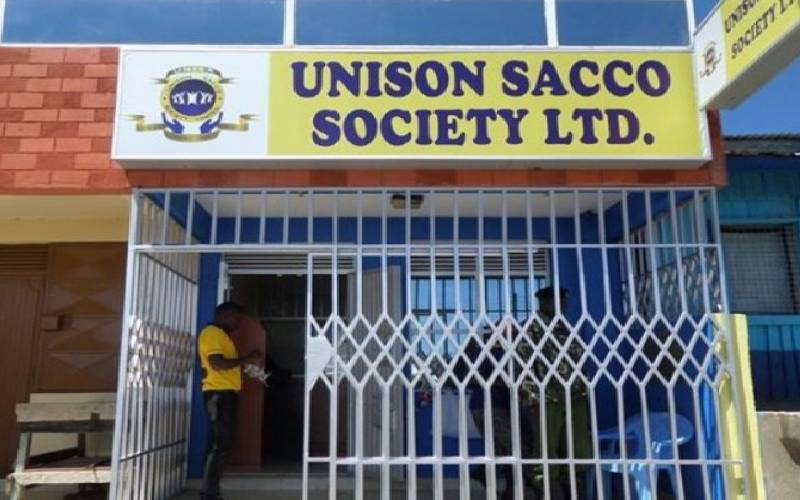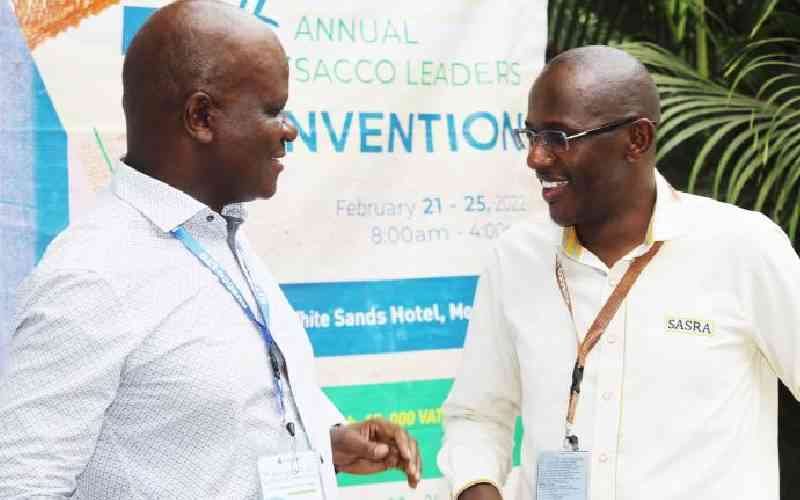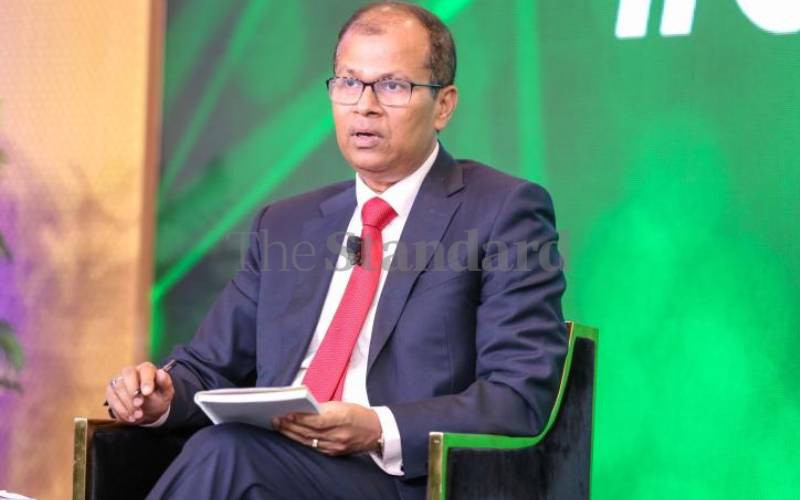
Long before Mshwari and Mkopa – offshoots of telco giant Safaricom’s Mpesa - stormed into the market, most people in the informal sector or low cadre jobs banked their hopes for savings and credit in mattresses and in Savings and Credit Cooperatives (Saccos).
Today, Saccos are under siege. A battle pitting the Sacco Societies Regulatory Authority (Sasra) and the Saccos' union ended in court where a determination was made this week. We take the view that the judge erred in siding with Sasra.
In new recommendations, Sasra wants Saccos to pay Sh10 million – from members’ fees – as an annual levy. Sasra’s other recommendation that Saccos pay “attractive” dividends to members is ludicrous because dividends are usually dictated by the nature of the investment ventures they take up.
Most of them invest in stocks and shares, trust funds or buy land and property for rental income. One therefore wonders what happens, say, when a good business prospect doesn’t yield much or stocks and shares collapse, as often happens.
Additionally, the contention by the Kenya Union of Savings and Credit Co-operatives (Kuscco) that the increased levy amounted to double taxation since members’ contributions are largely from salaries and employment income – covered under Pay As You Earn – is plausible and needs consideration. By their very nature, Saccos are accessible and lubricate the “small” economy with a constant supply of cash. Any move curtailing that is ill-advised.
Compare this; getting a loan through a staff Sacco takes a minimum of hours to a maximum of seven days. The banks' bureaucratic contortions are a discouragement to many would-be borrowers. Besides, many find these institutions a little bit out of reach.
Certainly, such a move will push members into the hands of exploitative shylocks and the good old mattress. Put simply, it defeats the purpose for which it was set to address. Yet not all is lost. The proposed insurance fee on contributions will cushion members’ savings in case of an unmitigated collapse.
This newspaper appreciates KRA’s renewed vigour to widen the tax net; but we won’t hesitate to question policies that squeeze out more and more from the same taxpayers.
In fact, sealing the loopholes used by tax evaders and other tax cheats should never amount to punishing the good guys.
That is counterproductive. Throwing wide the tax net ought to be informed more by the desire to get as many of those not paying taxes than chasing after converts.
To achieve that, KRA will have to come up with more innovative, responsive strategies, including the adoption of robust technology besides selling the gospel that paying tax is a civic duty that all should proudly undertake.
 The Standard Group Plc is a
multi-media organization with investments in media platforms spanning newspaper
print operations, television, radio broadcasting, digital and online services. The
Standard Group is recognized as a leading multi-media house in Kenya with a key
influence in matters of national and international interest.
The Standard Group Plc is a
multi-media organization with investments in media platforms spanning newspaper
print operations, television, radio broadcasting, digital and online services. The
Standard Group is recognized as a leading multi-media house in Kenya with a key
influence in matters of national and international interest.
 The Standard Group Plc is a
multi-media organization with investments in media platforms spanning newspaper
print operations, television, radio broadcasting, digital and online services. The
Standard Group is recognized as a leading multi-media house in Kenya with a key
influence in matters of national and international interest.
The Standard Group Plc is a
multi-media organization with investments in media platforms spanning newspaper
print operations, television, radio broadcasting, digital and online services. The
Standard Group is recognized as a leading multi-media house in Kenya with a key
influence in matters of national and international interest.









